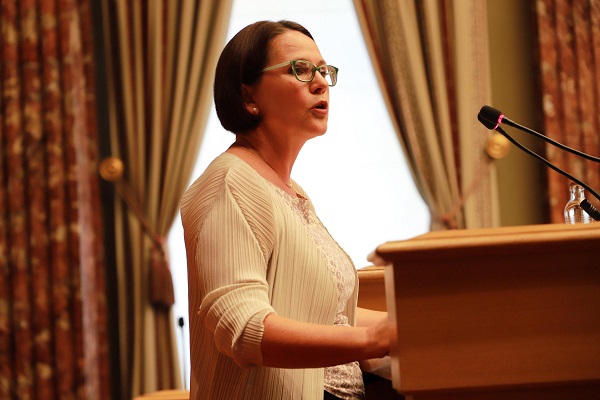 Yuriko Backes, Luxembourg's Minister of Finance;
Credit: Chamber of Deputies
Yuriko Backes, Luxembourg's Minister of Finance;
Credit: Chamber of Deputies
On Wednesday 12 July 2023, the Chamber of Deputies (Luxembourg's parliament) adopted a bill aimed at modernising the legislative framework governing investment funds in Luxembourg.
According to Luxembourg's Ministry of Finance, this initiative represents a further step to strengthen the competitiveness of the Luxembourg financial sector and is in line with the government's efforts to ensure the sustainability of tax revenues, by making part of the Luxembourg economy more attractive.
The bill, drawn up in close dialogue with the competent authorities and representatives of the Luxembourg investment fund industry, aims to improve and modernise the regulation of investment funds in Luxembourg in order to increase the attractiveness and competitiveness of the financial centre.
The Finance Ministry noted that Luxembourg has already occupied a leading position in the internationalisation of the investment fund industry for more than 35 years. Already the European leader in terms of UCITS funds, Luxembourg has also become an important centre for alternative funds. With more than €5,000 billion in assets under management, 300 authorised investment fund managers and more than 3,300 undertakings for collective investment, the Luxembourg fund sector plays a key role in financing the European economy and beyond, according to the ministry.
As part of this modernisation, the draft law modifies the five sectoral laws governing investment funds in Luxembourg, namely the law on the investment company in risk capital (SICAR), the law on specialised investment funds (FIS), the law on undertakings for collective investment (UCI), the law on alternative investment fund managers (AIFM) and the law on reserved alternative investment funds (RAIF). According to the ministry, these amendments make significant changes aimed at strengthening the regulatory framework and aligning with European standards.
Among the key changes introduced by the bill are the revision of the definition of a well-informed investor, the extension of the minimum capital formation period for certain funds and the extension of the forms of companies for "Part II" funds.
In addition, the bill modernises the subscription tax regime, in particular helping it align with European efforts to promote long-term investment, by creating tax incentives to support the emergence of new European products such as as European long-term investment funds (ELTIF) and pan-European pension products (PEPP), and to preserve Luxembourg's competitiveness compared to other jurisdictions. Moreover, the regime applicable to money market funds will be aligned with European standards.
Luxembourg's Minister of Finance, Yuriko Backes, stressed the importance of the Luxembourg investment fund industry and the role of this modernisation: "Investment funds play a key role in financing our economies and enable businesses as well as up to the public sector to raise the capital needed to successfully transition to a greener and more resilient economy. Moreover, the fund industry is part of the solution to meet the demographic challenges linked to the aging of the population in Europe. By modernising our legislative framework, we are opening the way to new opportunities and consolidating Luxembourg's role as a major financial centre, while promoting the development of new European products such as ELTIFs or PEPPs. With this modernised legislation, Luxembourg continues to innovate and anticipate market trends, affirming its leading position in the field of investment funds."








